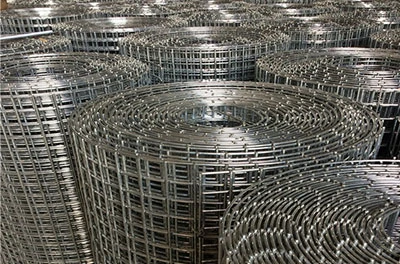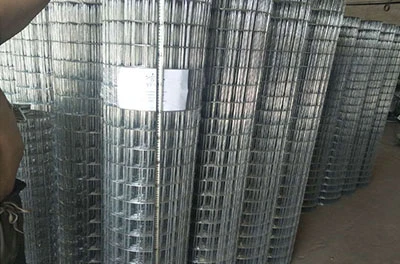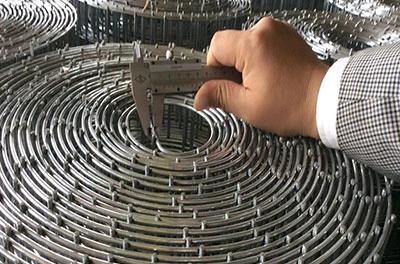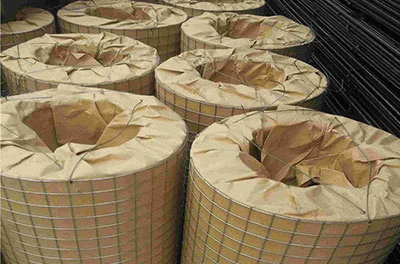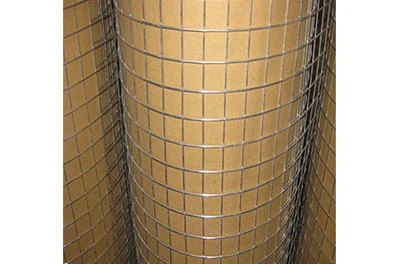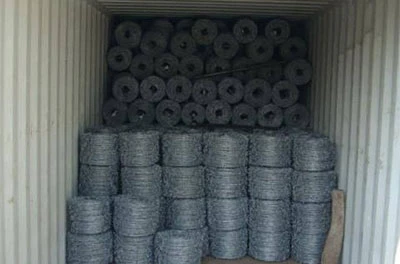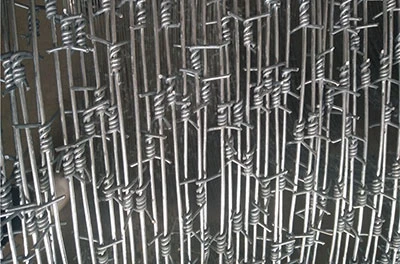Nov . 15, 2025 22:00 Back to list
Durable Floor Mesh Grating Solutions for Safer Industrial and Commercial Applications
The Essential Role of Floor Mesh Grating in Modern Industry
Floor mesh grating might not be the flashiest topic at the dinner table, but it quietly keeps much of our industrial and commercial world running smoothly. This practical yet versatile component provides the foundation for safer workplaces, efficient drainage, and durable walkways. In a globalized economy increasingly focused on sustainability, safety, and cost-cutting, understanding floor mesh grating has become more important than ever. It isn’t just metal; it’s a carefully engineered blend of design and function. Between bustling factories, construction sites, and transport hubs, floor mesh grating solves a straightforward but persistent problem: how to create surfaces that are strong, safe, and adaptable to demanding environments. Over the next pages, we’ll unpack why this simple-seeming product matters globally, explore its components, applications, and peek at what future innovations could bring. Plus, real-world insights spawn some surprisingly interesting ideas about how this essential building block shapes industries and communities. ---Global Context: Why Floor Mesh Grating Still Matters Worldwide
You might wonder why something as humble as floor mesh grating commands attention in conversations about industry or infrastructure. According to global infrastructure databases and the International Organization for Standardization (ISO), durability and safety in flooring systems are foundational in sectors contributing trillions to the world economy. Industrial accidents linked to slips and falls cost economies billions yearly — a chunk that grating solutions help trim. In fact, notes from the United Nations Industrial Development Organization (UNIDO) highlight that optimized mesh flooring can improve workplace safety by increasing traction and drainage, especially in chemical plants and offshore oil rigs. Emerging economies, particularly in Asia and Africa, are investing heavily in industrial parks and manufacturing hubs — places where floor mesh grating’s demand has markedly increased to meet international standards. In real terms, we see challenges like corrosive environments, heavy machinery vibrations, and even quick construction timelines, where floor mesh grating offers a fast, customizable fix. Mini takeaway: Floor mesh grating isn’t just plated steel; it’s a global safety and infrastructure cornerstone quietly supporting industrial growth and employee wellbeing. ---What Exactly Is Floor Mesh Grating?
At its core, floor mesh grating is a sturdy panel made by welding or weaving metal rods, bars, or wires in a grid-like pattern to create a supportive surface that lets liquids pass through while holding substantial weight. Think of it as industrial flooring, but breathable — ideal for harsh environments with fluids, debris, or temperature fluctuations. Connecting to humanitarian needs, it’s often used in emergency shelters or temporary relief operations where speed and safety are crucial. Its modular nature means quick deployment for walkways or platforms — a critical need in disaster-stricken zones or remote industrial fields. ---Core Components of Quality Floor Mesh Grating
Durability
The backbone of any mesh grating, durability depends on the materials — often carbon steel, stainless steel, or aluminum. Producing corrosion-resistant, load-bearing floor mesh prevents costly replacements and reduces downtime.Slip Resistance
Safety first. Textured surfaces or serrated edges combat slipping hazards, a must in chemical plants or outdoor sites where rain or oils are common.Customizability
Industries have diverse needs. Operators can select from various mesh sizes, thicknesses, and coatings — making floor grating scalable from light pedestrian walkways to heavy industrial loading zones.Drainage Efficiency
The open mesh design promotes quick water or chemical runoff, lowering accident risks and preserving structural integrity.Ease of Installation
Lightweight but strong mesh panels speed up assembly and maintenance — key for projects facing tight deadlines or harsh conditions. Mini takeaway: A perfect floor mesh grating balances strength, safety, adaptability, and installation ease. No surprise many engineers consider it a smart investment upfront. ---Real-World Applications: Where Floor Mesh Grating Makes a Difference
Across continents and industries, the applications are remarkably diverse: - Manufacturing Facilities: Supporting heavy machinery and maintaining traction where oil or chemicals drip. - Oil & Gas Platforms: Offshore rigs rely on stainless steel grating that withstands saline corrosion and high loads. - Public Transit Stations: Walkways and stair covers employ anti-slip mesh to handle heavy foot traffic safely. - Disaster Relief Camps: Modular floor mesh grating rapidly creates safe walkways on muddy or uneven terrain. - Agriculture: Barn floors or processing plants benefit from ventilated grates keeping waste clear and surfaces dry. Oddly enough, even urban rooftop gardens sometimes use lightweight mesh to provide drainage underfoot — a nice example of unexpected versatility. ---Product Specification Table
| Specification | Details |
|---|---|
| Material | Galvanized Carbon Steel, Stainless Steel, Aluminum |
| Surface Finish | Plain, Serrated, Coated |
| Load Capacity | Up to 5,000 lbs per panel |
| Panel Sizes | Standard: 4'x8', custom sizes available |
| Mesh Opening | 1"x4", 1"x2", or as customized |
| Weight | 15–40 lbs per sq.ft. depending on specs |
Advantages and The Long-Term Value of Floor Mesh Grating
Installing quality floor mesh flooring is more than ticking a safety box. The up-front investment saves money down the timeline by decreasing accidents, preventing corrosion damage, and simplifying maintenance. It genuinely improves trust among workers who know the floor won’t betray them when they least expect it. Sustainability is increasingly on everyone’s mind. Modern steel mesh is often recyclable, reducing environmental impact compared to synthetic alternatives. And its long lifespan means fewer replacements, less waste, and more efficient resource use — exactly the kind of circular thinking industries strive for today. On an emotional level, it’s about respect, dignity, and reliability. It's this subtle but powerful reassurance that many tend to overlook when admiring the clean lines of a factory floor or bridge platform. ---Vendor Comparison Table
| Vendor | Material Options | Customization | Lead Time | Warranty |
|---|---|---|---|---|
| Chengsen Mesh | Steel, Aluminum, Stainless | High – Custom sizes, finishes | 2-4 weeks | 5 years |
| Global Grate Co. | Primarily Carbon Steel | Medium – Standard sizes only | 3-6 weeks | 3 years |
| Metro Metalworks | Steel, Stainless Steel | Low – Limited customization | 4-8 weeks | 2 years |
Looking Forward: Future Trends and Innovations in Floor Mesh Grating
Innovation always creeps in where least expected. Advances in metal alloys and coatings promise grating that resists chemicals and rust even better while staying lighter than traditional steel. Additive manufacturing — 3D metal printing — could one day allow for intricate, custom mesh patterns tailored precisely to a project's stress points or drainage needs. Sustainability initiatives are pushing the development of eco-friendly coatings and recycling programs. Digital transformation brings smart sensors embedded into floor mesh to monitor structural integrity or environmental conditions in real-time — a game changer for maintenance and safety. ---Challenges and Practical Solutions
Of course, no solution is perfect. Corrosion still lurks as a nemesis in aggressive environments, requiring coatings or stainless options which can increase costs. Installation in awkward or highly customized spaces sometimes necessitates on-site cutting and welding — adding time and labor. But many companies adopt modular panels and advanced surface treatments, and invest in worker training to ease these hurdles. Thanks to suppliers like Chengsen Mesh, bespoke technical support is often available to help anticipate and solve these issues. ---FAQ: Frequently Asked Questions About Floor Mesh Grating
- What makes floor mesh grating a better choice than solid flooring in factories?
Its open grid design allows fluids and debris to pass through, reducing slip hazards, and it provides excellent ventilation and drainage, unlike solid flooring that can trap dangerous spills. - How resistant is floor mesh grating to corrosion?
Depends on the material and finish; stainless steel and galvanized options offer substantial resistance, making them suitable for chemical plants or outdoor use with proper maintenance. - Can floor mesh grating be customized for unusual shapes or sizes?
Yes, most manufacturers offer custom sizing, hole spacing, and surface textures to fit complex layouts or specific safety requirements. - Is floor mesh grating suitable for outdoor pedestrian areas?
Absolutely. Its slip-resistant surfaces and open layout make it ideal for walkways, platforms, or stair treads exposed to rain or snow. - How easy is it to maintain and clean floor mesh grating?
Generally low maintenance — simply pressure washing or brushing can keep it clean. The open mesh design also prevents accumulation of dirt and liquids.
Conclusion: Why Floor Mesh Grating Is an Industry Staple
Floor mesh grating might seem like a small piece of the massive infrastructure puzzle, but it punches well above its weight in global safety, efficiency, and sustainability. It’s a practical, cost-saving solution that industries from oil rigs to disaster relief camps rely on daily. Plus, with emerging materials and smart technologies, the future for floor mesh grating looks bright and innovative. If you’re interested in high-quality, customizable floor mesh grating solutions, be sure to check out Chengsen Mesh — where expertise meets durability. ---References
Latest News
-
Durable and Custom Metal Grid for Drainage Solutions | Chengsen Mesh
NewsNov.24,2025
-
Durable Metal Drain Grill Solutions | Urban & Industrial Drainage Experts
NewsNov.23,2025
-
Hinged Grating: Durable, Safe, and Efficient Infrastructure Access Solutions
NewsNov.22,2025
-
What Is a Grating Wall? Benefits, Uses & Industry Trends Explained
NewsNov.21,2025
-
Durable and Customizable Grating Stainless for Industrial & Infrastructure Needs
NewsNov.20,2025
-
Grating Plumbing: Durable & Efficient Drainage Solutions For Modern Infrastructure
NewsNov.20,2025
Our company owns has excellent CAD steel grating drawing designers, who can provide customers with perfect steel grating layout design and better meet customers' special requirements for products. We have been adhering to it the business tenet of "quality first, customer first", with high-quality products, reasonable prices, and the fastest delivery time, we wholeheartedly provide customers with a full range of services! Welcome new and old customers to cooperate sincerely and create brilliance together!
Contact Us
WELCOME TO OUR COMPANY!
Thank you for your interest in our services! If you have any questions or wousld like to book a service, please don’t hesitate to contact us. Our team is dedicated to providing you with the highest level of service and support, and we are committed to working with you to make your event a success.

Service Email

Service Phone
Product Center
Contact Us
- Phone: +86 +86 15733154345
- E-mail: sales@chengsenchina.com
- Address: B1213 GLOBAL CENTER, NO.226 ZHONGHUA NORTH STREET, SHIJIAHUANG, CHINA


